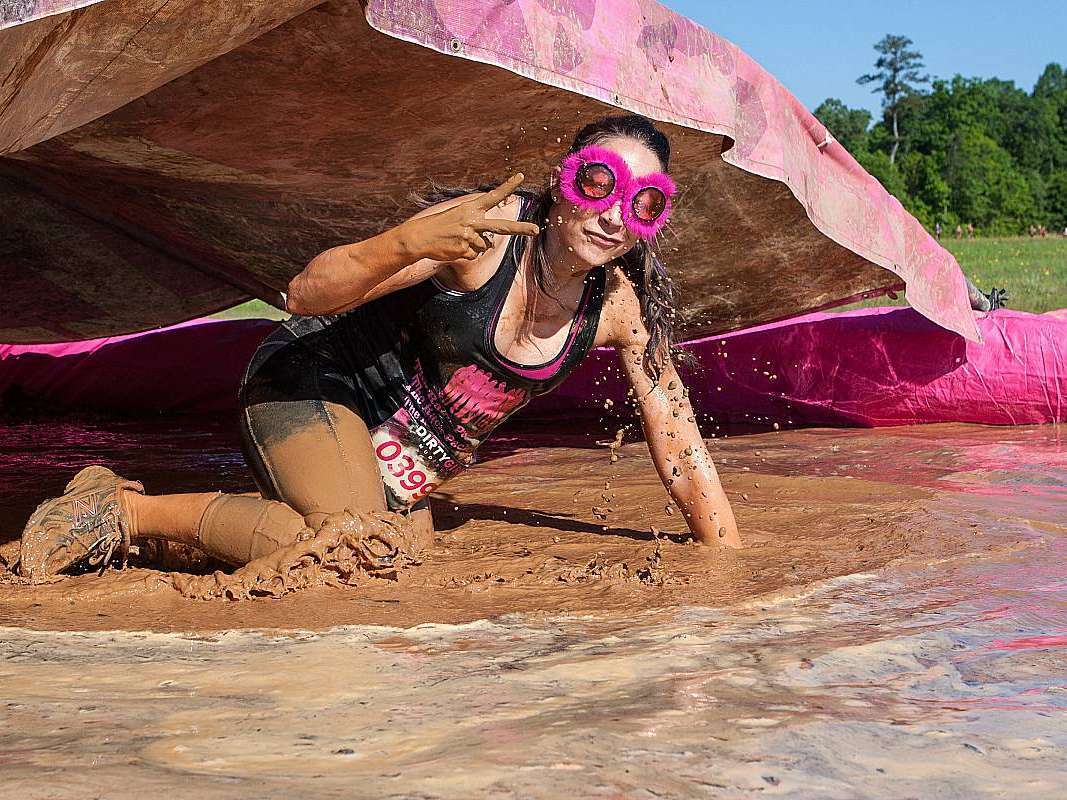This is the third post in a 3-part series: 3 Things Every Triathlete Should Learn From Lance Armstrong. This final post of the series unpacks how Lance Armstrong turned endurance sport training into a discipline of applied science.
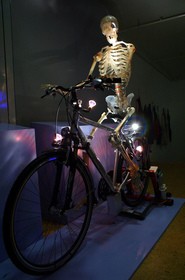 Applied science is the art or science of applying scientific knowledge to practical problems. When it comes to sports, this is often referred to as Sports Science, which is a discipline that studies the application of scientific principles and techniques with the aim of improving sporting performance.
Applied science is the art or science of applying scientific knowledge to practical problems. When it comes to sports, this is often referred to as Sports Science, which is a discipline that studies the application of scientific principles and techniques with the aim of improving sporting performance.
The study of Sports Science traditionally incorporates areas of physiology, psychology, motor control and biomechanics, but also includes other topics such as nutrition and diet, sports technology, anthropometry, kinanthropometry, and performance analysis.
Lance Armstrong was a master at applying scientific knowledge to the task of becoming a better cyclist and endurance athlete. To be the best triathlete you can be, you must do the same.
Endurance sports training such as triathlon training is an applied science or Sports Science.
The reason why this is so important is because too often, rather than basing their training plan on factual data and sound principles, the amateur athlete instead is easily swayed by myths.
The Most Common Myths
- Train as hard as you can, every time, all the time.
- All fats are bad.
- Stretching is optional.
- Days off are for wimps.
- When it comes to mileage, the more the merrier.
- To really be competitive, you must train more than 15 hours a week.
- When weight training, do high reps so you don’t bulk up.
- Losing weight will always improve your performance.
- The best indicator of a good workout is how sore you are the next day.
- (If you are under 78…) I’m too old to do a triathlon.
- To be competitive you need a $5,000 bike.
- Have a massive carbo load meal the night before your big event.
Lance Armstrong applied knowledge from several fields or disciplines to his sport.
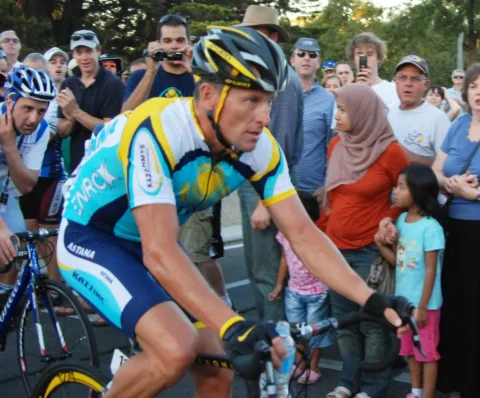
Let me just mention two: psychology and nutrition.
Psychology (The Science Of Mind And Behavior)
Chris Carmichael, Lance Armstrong’s cycling coach, said of Lance:
Lance Armstrong can be beaten at the Tour de France, but only by an athlete who is better prepared than he is. To accomplish that, an athlete would have to be more motivated than Armstrong, and I believe the depth and intensity of Lance’s motivation comes from a place very few people can understand, let alone match. He’s the hardest working man in the peloton, perhaps in the world of sport, and his commitment to excellence in training, nutrition, equipment, and team selection has elevated him above everyone else.
Source
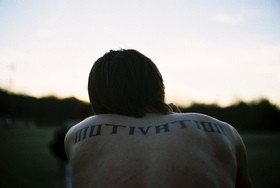 Put simply, motivation is the reason for an action. It’s what gives purpose and direction to what you do or what causes or stimulates you to act. Motivation is “WHAT drives you” to behave in a certain way or to take a particular action. It is your WHY. Your WHY is the strong reason for you to desire something. It is not what you desire, but the strong reason you desire it.
Put simply, motivation is the reason for an action. It’s what gives purpose and direction to what you do or what causes or stimulates you to act. Motivation is “WHAT drives you” to behave in a certain way or to take a particular action. It is your WHY. Your WHY is the strong reason for you to desire something. It is not what you desire, but the strong reason you desire it.
For example, let’s say you want to stop working and go into business for yourself. Here’s a plausible explanation. Your desire is to have your own business. Your WHY is, let’s say, to be independent, to have more time for your family, to have more time to fulfill other things on your bucket list.
Your WHY goes beyond the physical objectives themselves and satisfies a psychological need. That is critical. If your reason for doing something is just material (e.g. to own a Hummer or have a huge house), it is unlikely to see you through the difficult times to achieving what you desire.
Your WHY has to look beyond the physical. It has to be from deep within. That way, when the going gets tough, your WHY will see you through it because it is a strong, burning reason. It is a reason that will stand strong in the face of opposition. That’s what Lance had. That’s why Lance won the Tour de France 7 times.
So, what’s your motivation or “WHY” for being a triathlete, and training and competing in triathlons?
The application of psychology to triathlon would say that if your “WHY” is big enough, the “HOW” doesn’t matter. If your reason for wanting something is strong enough, even if at the time you don’t know how to achieve it, go after it. You often find that when you desire something bad enough the world conspires in your favor to bring about the circumstances, people and resources you will need to achieve that purpose.
I’m assuming you’ve already decided to do triathlons. But I would encourage you to think about WHY you want to do them. What are your deepest, most s
ignificant reasons? Write them down.
Somewhere in the water or out there on the bike or climbing a hill on a run, you can lose sight of your motivation or your “WHY” for doing triathlon. The trick is to keep your motivation always before you. When it hurts, when you want to stop, when you experience a setback, when you get a flat, when you feel you have been pushed to the furthest limits of your self, let these experiences stimulate your awareness of your “WHY.”
Nutrition (The Science Of Diet And Body)
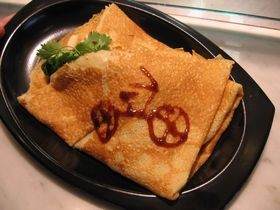 Lance Armstrong practiced nutrition periodization, which was an uncommon practice among most cyclists at the time Lance started it. Traditionally, cyclists would gain weight in the off-season, and then try to burn it off at the beginning of the racing season. Armstrong decided not to gain weight, and instead focus on training his body to use fuel more efficiently. Therefore, Lance adapted his diet accordingly throughout the year.
Lance Armstrong practiced nutrition periodization, which was an uncommon practice among most cyclists at the time Lance started it. Traditionally, cyclists would gain weight in the off-season, and then try to burn it off at the beginning of the racing season. Armstrong decided not to gain weight, and instead focus on training his body to use fuel more efficiently. Therefore, Lance adapted his diet accordingly throughout the year.
In the winter, Lance eats far fewer carbs because he isn’t burning as many calories (i.e. no races). Because high performance isn’t necessary, he trains his body to more efficiently burn fat for energy while restricting his carbohydrate intake. This comes in handy during the race season, when he needs to hold onto glycogen stores as long as possible. So by withholding some carbs (he still eats some and never approaches anything resembling an Atkins approach), Lance trains his body to be more efficient. During the racing season, this changes and he adds more and more carbs as the races get more intense.
In some sense, nutrition periodization is common sense given the fact that triathletes don’t do the same thing, in the same way, throughout the year. Your diet should change as your level of activity changes in your annual triathlon training plan.
If you wanted to invest some more time in educating yourself on nutrition periodization, consider reading, Nutrition Periodization for Endurance Athletes.
One of the best resources for a comprehensive exploration of the science of triathlon training is Joe Friel’s book, The Triathlete’s Training Bible.


